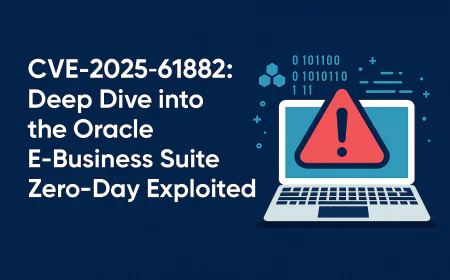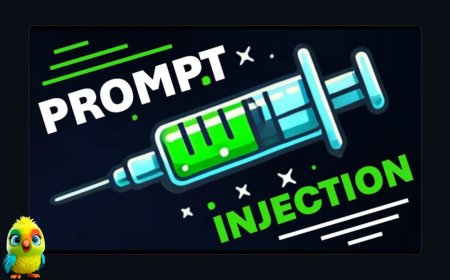From Code to Compliance: Unseen DevSecOps Tools That Make Audits Easy
Compliance is no longer just a checkbox—it’s a continuous, code-driven process that must keep up with modern DevSecOps workflows. While most teams rely on popular tools for security and testing, they often overlook lesser-known open-source tools that can make compliance automation smoother, faster, and more audit-friendly. In this blog, we’ll introduce powerful yet underused DevSecOps tools that help you automate evidence collection, enforce security policies, generate audit reports, and stay compliant with standards like SOC 2, ISO 27001, GDPR, and HIPAA—without slowing down development. Whether you're aiming for continuous compliance or just trying to survive your next audit, these tools can bridge the gap between code and compliance with minimal overhead.

Simplifying Compliance: Hidden DevSecOps Tools That Make Audits Effortless
In modern software development, security and compliance are critical—but audits often feel like a daunting, time-consuming task. What if there were some lesser-known, open-source DevSecOps tools that could automate much of this process and make audits much easier? These tools work quietly in the background, helping teams build compliance into their workflows so audits don’t become stressful bottlenecks. In this blog, we’ll uncover some hidden gems that can help you move smoothly from writing code to passing audits with confidence.
In today’s fast-paced software world, security and compliance are more important than ever. But audits — those mandatory checks to ensure your software meets industry regulations — can feel like a huge headache. What if the tools you use every day in your DevSecOps pipeline could make audits not just easier, but almost seamless?
Most developers and security teams know about popular compliance tools, but there’s a treasure trove of lesser-known, open-source tools that quietly work behind the scenes to automate compliance tasks. These hidden gems can save hours, reduce human error, and make audits less stressful.
Let’s explore some of these unseen heroes that bridge the gap between writing code and passing compliance audits smoothly.
Why Compliance Automation Matters in DevSecOps
Compliance isn’t just about checking boxes — it’s about building trust with users, protecting data, and avoiding costly penalties. Automating compliance checks early and often in the development cycle helps teams catch risks before they become problems. It also means audits don’t require last-minute scrambling.
1. OpenSCAP – Scanning Made Simple
OpenSCAP is an open-source tool that helps automate compliance scanning based on the Security Content Automation Protocol (SCAP). While often used in government and enterprise, it’s less known in the DevSecOps community. OpenSCAP can scan your systems against benchmarks like CIS or DISA STIGs, producing reports that auditors love.
Why it’s great:
- Automates configuration checks
- Supports many security policies out of the box
Generates audit-ready reports
2. InSpec – Test Your Compliance as Code
InSpec, from Chef, allows you to write tests that describe compliance requirements as code. You can automate checks for everything from file permissions to cloud configurations. InSpec runs these tests continuously, so you know your environment stays compliant over time.
Why it’s great:
- Easy to write and understand compliance tests
- Integrates with CI/CD pipelines
- Supports multiple platforms
3. TFSec – Security Static Analysis for Terraform
Infrastructure as Code (IaC) is everywhere, but security issues hidden in your Terraform scripts can cause big compliance headaches. TFSec is an open-source static analysis tool that scans Terraform files to find security and compliance risks before deployment.
Why it’s great:
- Focused on cloud infrastructure security
- Fast and easy to integrate
- Helps enforce compliance policies early
4. Trivy – Vulnerability Scanning Made Lightweight
Trivy is a simple yet powerful open-source scanner for container images and filesystems. It detects vulnerabilities, misconfigurations, and compliance issues quickly, making it perfect for continuous scanning in your DevSecOps pipeline.
Why it’s great:
- Supports multiple vulnerability databases
- Scans containers, file systems, and IaC
- Lightweight and fast
5. Policy-as-Code Tools: Open Policy Agent (OPA)
OPA lets you write policies as code that can be enforced across your stack, from APIs to Kubernetes clusters. It’s flexible and extensible, enabling teams to codify compliance rules that automatically gate deployments and configurations.
Why it’s great:
- Centralized policy management
- Real-time enforcement
- Works across diverse systems
Bringing It All Together
Incorporating these lesser-known open-source tools into your DevSecOps workflows can drastically simplify audits and improve compliance posture. By automating checks from code to deployment, you reduce manual work and increase confidence that your systems meet regulatory requirements.
Start small—pick a tool that fits your environment and goals, and integrate it step by step. Over time, these tools will transform compliance from a dreaded task into a natural part of your development process.
Final Thoughts
Compliance doesn’t have to slow down your development or create stress during audits. With the right set of open-source DevSecOps tools, you can build security and compliance into your workflows—making audits not only easier but faster and more reliable.
Which of these tools are you excited to try? Or do you have other hidden gems you swear by? Let me know!
































